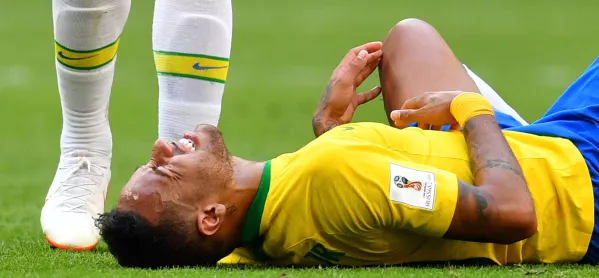A primary head has banned football at breaks and lunchtime because pupils have been emulating the unsporting behaviour of World Cup stars.
Richard Potter told parents he was implementing the one-week suspension because the day after England’s penalty shootout victory over Colombia was “a very bad day for football at Home Farm”.
He told Tes that yesterday the school, in Colchester, Essex, had seen “something like 14 small minor problems, and they were all about football”.
Blaming the problems on the example set by World Cup stars, he said: “Some of the players do show a tendency to hard tackle and of course it’s down to a referee to make a decision, but in the age of television and videoing these children see these players get away with it.
“They are professional players and therefore they are not being good role models.
“They might win a game and it might be a strategic decision to lay on the floor and hold your leg, or to barge someone out of the way, and if you win that one then ‘well, it got us that goal’, but it’s not good for four- to 11-year-olds.
“They will emulate their favourite players.”
Mr Potter called an assembly to explain the problem to the children, and told classes they will be able to earn back their football time by agreeing a code of conduct for break and playtime matches.
In an email to parents, he said: “The ban is not permanent but designed to highlight to the children that they have the power and the opportunity to prove they are responsible as classes to earn this privilege back.”
He told Tes: “It’s not just a blanket ban because I’m a grumpy old man. I’ve made it a learning experience to try and tackle the negative role models of some professional players.”
One parent, who asked not to be named, was worried the ban meant an opportunity to use the tournament to motivate children to play sports would be lost.
She told Tes: “With kids’ obesity rates being as high as they are, kids should be encouraged to play as much football at the moment as they can.
“My two daughters, who have never been interested in football, are now suddenly really keen to play for the first time. It’s such a shame the school isn’t encouraging that.”
Mr Potter told Tes he agreed that that World Cup was “a golden moment to get children involved in sports”, but added: “They must be involved in sports in a sportsmanlike and appropriate way, and that’s what we are helping to facilitate, and it’s only a week - five days.”




